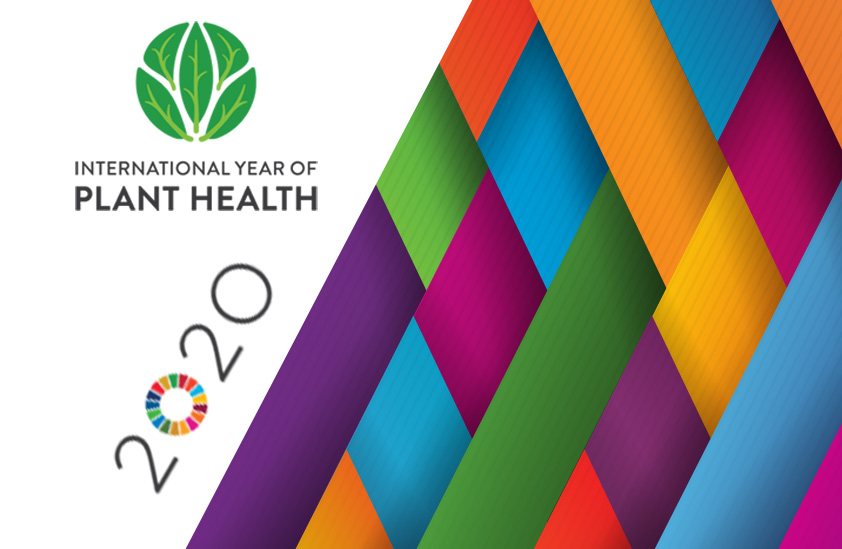The United Nations General Assembly declared 2020 as the International Year of Plant Health (IYPH).
The year is a once in a lifetime opportunity to raise global awareness on how protecting plant health can help end hunger, reduce poverty, protect the environment, and boost economic development.

We are all aware that Climate change–caused by human activities–has reduced biodiversity and altered the ecosystems we value. In the last decade, international travel and trade has tripled in value which can quickly spread diseases and pests–resulting in damage to native plants and the environment.
According to FAO.org:
“Protecting plants from pests and diseases is far more cost effective than dealing with full-blown plant health emergencies. Plant pests and diseases are often impossible to eradicate once they have established themselves and managing them is time consuming and expensive. Prevention is critical to avoiding the devastating impact of pests and diseases on agriculture, livelihoods and food security and many of us have a role to play.”
Healthy plants frame and compose the foundation for all life on earth, fabricating the oxygen we breathe and over 80% of the food we eat. Plant health is essential to the sustainable incorporation of agriculture to feed our rapidly growing global population. This is why it is so important to support the promotion of plant health and raise awareness on an international level–it affects all of us! The United Nations focus on Plant Health in 2020 provides a rare opportunity for to use our personal wisdom and know-how to change the way the world views plants.
The Key Messages IYPH 2020 aims to raise awareness for:

Maintain plant health to achieve Zero Hunger and Sustainable Development Goals.
Pests and Diseases destroy 20-40 percent of food crops every year. Increasing awareness towards policies and actions that promote plant health are fundamental for reaching measurable Sustainable Development Goals.

Use caution when bringing plant products across borders.
In order to reduce the spread of plant pests and diseases, always ensure any products you’re bringing across borders meet phytosanitary requirements. Failing to do so could seriously damage national food security–stirring the foundation of the environment and economies.

Only trade plants and plant products the comply with international plant health standards.
Unforeseen and unchartered plant trade can not only damage plants and biodiversity–but also shake-up economic stability for countries that depend on plant product trading. Standards and norms like those developed by the International Plant Protection Convention (IPPC) and Food and Agriculture Organization of the United Nations (FAO)exist to reduce negative impacts of irresponsible trading practices.

Keep Plants Healthy!
New ecological openings where plant diseases and pests thrive are broadened as climate change alters our cherished ecosystem; threatening the environment that we all rely on. Farmers and agriculture managers should adopt and encourage the use of environmentally-friendly pest management methods.

Invest in Plant Health Science and Research.
Investing in innovative practices and technologies for plant health will help provide governments, policymakers, legislators and other relevant institutions plant the seed for an opportunity to grow and provide adequate human and financial resources required to cultivate plant health capacity development, research and outreach.

Strengthen monitoring and early warning systems to protect plant health.
Before making decisions, policymakers and governments should make sure their conclusions are based on sound preparation and data. When plants are regularly monitored, and early warning information about emerging threats are received, agriculture officers and farmers can take preventive and adaptive measures to maintain healthy plants for the future.
What can you do to help Protect and Celebrate Plant Life?
It isn’t just Governments and transportation industries that have a role to play–everyone needs to avoid taking plant and plant products with them when travelling across borders. Everyday actions also include reducing your environmental footprint, protecting natural resources and spreading the word. Read more about how you can take action!




